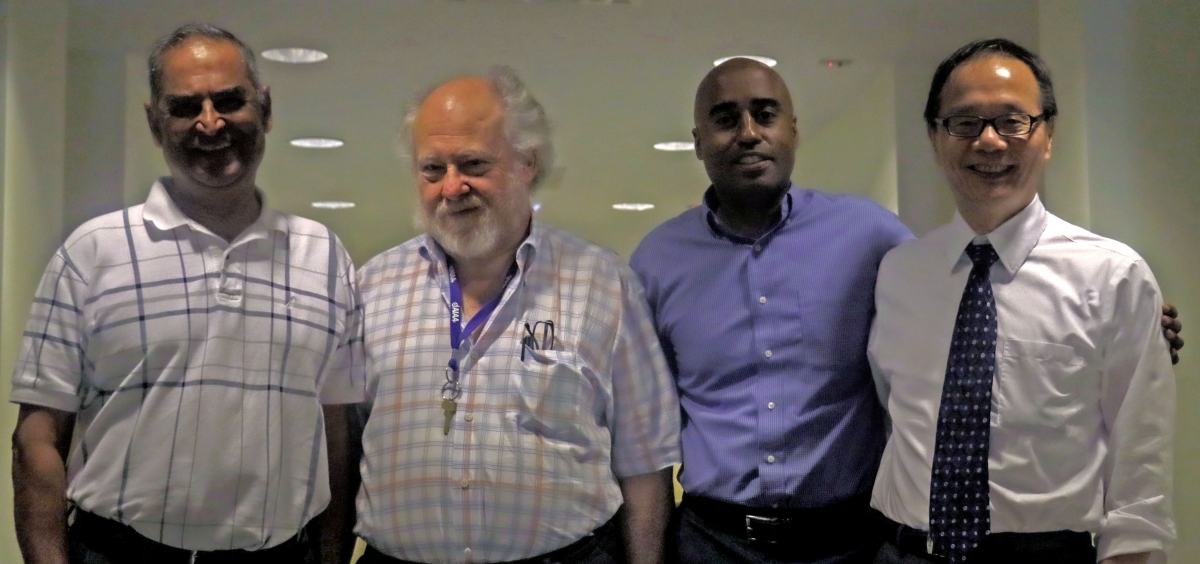
Service to the Aerospace Engineering School. Prof. Jeff Jagoda, (second from left), is seen here with former AE Chair Vigor Yang (far right) and his fellow associate school chairs, Lakshmi Sankar and Stephen Ruffin. Long before - and long after - he served as associate AE School chair, Jagoda unofficially reigned as the AE School's "Anxiety Whisperer." He will officially retire December 1.
If you’ve ever visited the Daniel Guggenheim School on the eve of finals, you might have seen something we call the “Jagoda Line”: a clot of students nervously milling around the doorway of Prof. Jechiel “Jeff” Jagoda’s
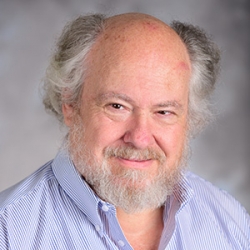 |
| Prof. Jechiel "Jeff" Jagoda |
office. As long as that line gets, it’s never disruptive. The waiting students are too burdened by worries of failing (“What will I do then?”) and of passing (again: “What will I do then?”). But the man they’ve come to see – a German physicist with a lilting British accent – has answers that put hope back into their toolbox.
“We talk until we know what the real problem is and what possible solution might be,” says Jagoda of his decades-long avocation as AE’s Anxiety Whisperer. “It might take us awhile, but when they enter that office, they know they’ve got my attention.”
Those words characterize the instruction, the research, and, yes, the fatherly advice that Jagoda has doled out to countless students (& colleagues) over his 40+ year career at Georgia Tech. And if he has his way, it will continue into his retirement, which officially begins December 1.
The plan is for him to return as a Professor Emeritus, allowing new Jagoda Lines to form when the need arises (and the students return). Meanwhile, we thought it was about time Jeff Jagoda gave the rest of us some of the best advice he’s culled from a career (and a life) that he never expected to have.
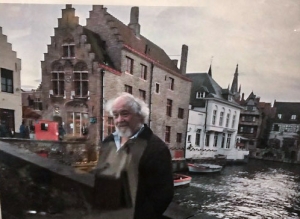 |
| Home. He's traveled the world as a researcher, but, like many of the international students he regularly advises, Jeff Jagoda carries a special love for his childhood home. |
1. Be humbled by the lives of others. You’ll learn a lot at Tech, but there’s a lot out there you’ll never know.
Both of my parents [Ruth and Mordechai Jagoda] were born in Poland, and both of them suffered the brunt of World War II. But neither of them talked about the Holocaust when I was growing up. I was attending German schools where there were still very few Jews. They didn’t want me to feel uncomfortable. Bit by bit I found out that my father spent three years in Buchenwald, a Nazi concentration camp, and my mother was sent to Siberia. They met after the war in Germany, when my mother was living in a Displaced Persons Camp. That was a place you went if you had nowhere else to go. She was helping children without papers to get to Palestine.
So they didn’t talk about their experience. It’s hard to talk about your beliefs when everyone around you was killed for having them. I just knew they wanted better for me. Now, a friend of mine who was also Jewish, he had parents who talked about their wartime experience all the time. My friend heard all of their stories, and they were terrible. What I can tell you is, he had a very hard time getting along with almost everyone else in school. I think he was haunted by what he’d heard. Years later, I heard he’d gone mad.
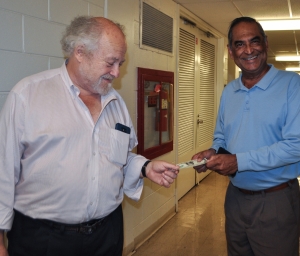 |
| Great Colleagues. Greater Friends. Prof. Jeff Jagoda is seen here pretending to take a payment for pizza delivery from his longtime friend and colleague, Prof. Lakshmi Sankar. |
2. Your best advisors are the people who know you best.
If I’ve learned anything about advising, it started with my mother, in particular, who would sit and listen to me, help me to reason things out and make a decision. I remember when I told her I wanted to study history in college, she was not too happy, but she never said I couldn’t.
Instead, she said “What will you do with a history degree? Is there anything else you are interested in?” I said “Yes, chemistry’s good. I like that.” And she said “Why don’t you study chemistry?”
From her, I learned that you don’t tell people “You have to do this” or “You can’t do that.” You explore the positives and the negatives and figure out what the options are. My mother knew me, so she steered me in a good direction. I still love history, but science was good, too.
As an advisor at Tech, I take as long as I need to get to know the person I’m advising because that’s going to tell me what their abilities are. I’m going to hear the answer to their own questions if I listen closely enough to what
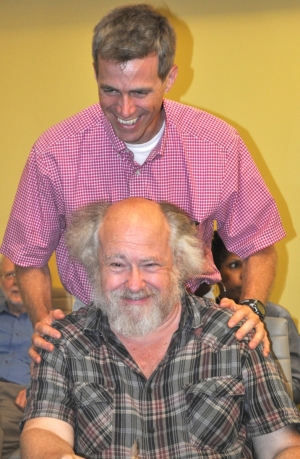 |
| Combustion Lab Shenanigans. Regents Professor Tim Lieuwen laughs it up with his friend and colleague Jeff Jagoda during a birthday celebration for the latter. |
they tell me about their own lives.
Advising has given me a lot of satisfaction over the years. I developed something I call “The Kudos File”, where I save all of the notes I’ve received from students I advised, telling me how well they are doing now. I’ve been downsizing my office and my files over the last few years, and you could easily say that this file could go. But I’ll never let it go.
3. Travel is the greatest education. Ever.
I encourage everybody to take at least one semester abroad, to see the world. As a professor at Tech, I have never tired of the opportunity to attend conferences or to meet with colleagues all over the world. Over the last 40 years, I’ve probably been to about 20 countries. To see other countries and observe how people live is the best education there is. I learned this very early.
When I was 15, my parents sent me to live with my aunt in Allentown, Pennsylvania. I had studied Latin for a few years, and I knew German, of course, but I knew very little English. When I got there, I learned English by watching a lot of westerns on television.
The idea was that I would go to the U.S. first, and the rest of my family would follow. It was not uncommon after the War for a Jewish family to send one child ahead of everyone else. But in my case, my aunt sent me back to Germany in about a year. Apparently, I wasn’t all that good at listening to her directions. [laughs]. But I really loved the experience.
When I got back to Germany, they enabled me to go a private school in London, where I lived as a boarder with one of the teachers. Later, I would earn my degrees [in combustion physics] at the Imperial College of London, and I would do a post-doc at CNRS in Mulhouse, France. All of these experiences were tremendous. Then I came to the United States to take a job at Tech.
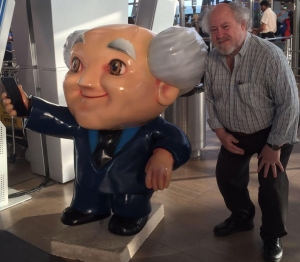 |
| "He copied my hair style." Jagoda, right, stands next to a statue of Ben Gurion in the Tel Aviv airport. |
4. Go out of your way to meet interesting people. Then ask them lots of questions.
When I came to the United States as a teenager, my cousin told me to be careful who I associated with. She was obsessed with hanging out with the straight-A crowd, the high-achievers. It’s not that I didn’t like those people, but I was drawn to anyone who seemed interesting. Anyone who has something to offer.
I still am.
As a teenager in Allentown, I remember there was this guy who really knew how to ride a motorcycle. I don’t think he was a straight-A student by any stretch of the imagination, but when he offered to give me a ride on his motorcycle, I went. And it was the best, most thrilling ride, ever. I could never have done what he did.
Not everyone is going to be at the top of their class or academically inclined, but everyone has some good side, some thing that they do well. Maybe it’s because I knew no one when I came to the United States that first time, but I made a point of asking people I thought were interesting to explain what they were doing or to tell me about what interested them.
I still do.
5. In spite of your best ambitions, you might end up in academia. And you might end up loving it.
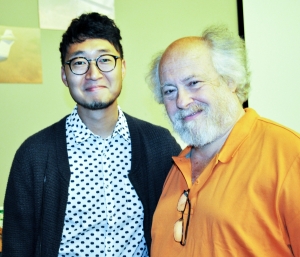 |
| Supportive Colleague. No matter how busy with his teaching, advising, and research duties, Jeff Jagoda has always found time to bond with the staff of the AE School. Here he is seen with Jinwoo Lee. |
I had no plans, in particular, after I earned my Ph.D. I was offered a post-doc in France, and I thought, after that, I would look for work in industry, where I knew they needed people like me to design new refrigeration or furnace technology. I wasn’t all that excited about it. I was coasting.
I was still on that post-doc when my PhD. advisor, Felix Weinberg, called me one day and said he’d be driving through Mulhouse, France on his way to Switzerland, and would I like to join him for lunch? Lunch turned into an invitation to join him in Switzerland for a few days. And that’s when he asked me.
“Have you ever thought of Georgia Tech, of teaching there?”
Well, no I hadn’t thought of Georgia Tech, or teaching I said.
“Well why don’t you go talk to them? I know two professors there – Ben Zinn and Warren Strahle—who will be at the Combustion Meeting in Manchester England…”
Well, I didn’t need any convincing to travel and the conference sounded interesting. After I met Strahle and Zinn, I was even more interested in this teaching thing. They set up an interview at Tech, which meant I was getting a free trip to the United States, so I also set up two other interviews, one at Princeton and one at LSU.
In the end, I got offers from all three, but to my father, there was only one way to go. “What’s Georgia Tech?” he asked. “You have to go to Princeton, it’s an Ivy.”
But my experience at Tech had already convinced me that this was where I wanted to be. From the minute I stepped on campus, I felt welcomed by the faculty. When I gave a seminar in [Montgomery Knight] 317, all of the faculty were there and they were all very engaged and asking questions. I had private meetings with at least 10 of them afterwards.
After my visit, I returned to Germany for a few months to iron out details of my visa. While I was waiting for that, I did some design work for this very well respected professor at the Technical University of Munich. And when I say respected, I mean in Germany there’s God and then there’s a chaired professor. When I told this chaired professor where I was going, he reacted a lot like my father.
“What is Georgia Tech? I’ve never heard of them….”
Well, of course, I came to Tech anyway, but the story doesn’t end there.
A couple of years ago, the Technical University of Munich decided to include not just mechanical engineering but aerospace engineering as well. So what did they do? They sent an entourage of officials that included the minister of education for the State of Bavaria to Georgia Tech to find out how to build a tier-1 aerospace engineering school.
[Laughs]
I got to show them around, and, I guess, we answered that question: “What is Georgia Tech?”
I suppose all’s well that ends well.
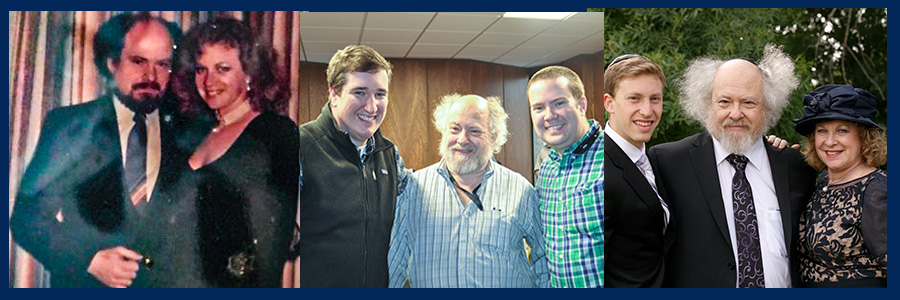 |
| A Timeless Classic. From left, Jeff Jagoda newly married, with his wife, Adina; with Ben T. Zinn Combustion Lab colleagues Christopher Ballance and Bobby Noble; and with his son Aaron, and wife, Adina. |